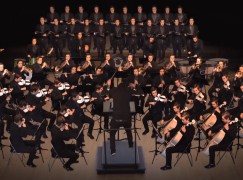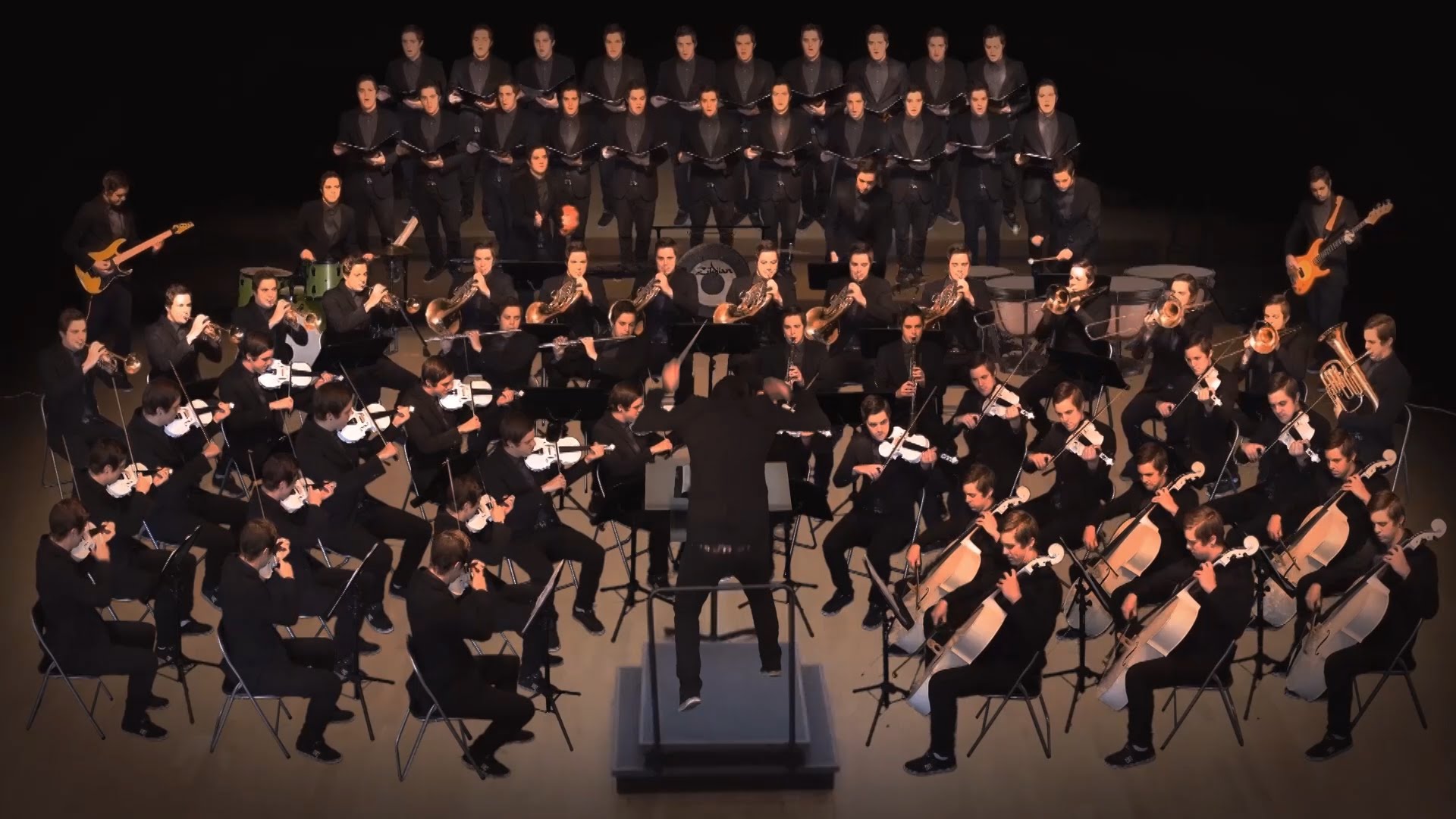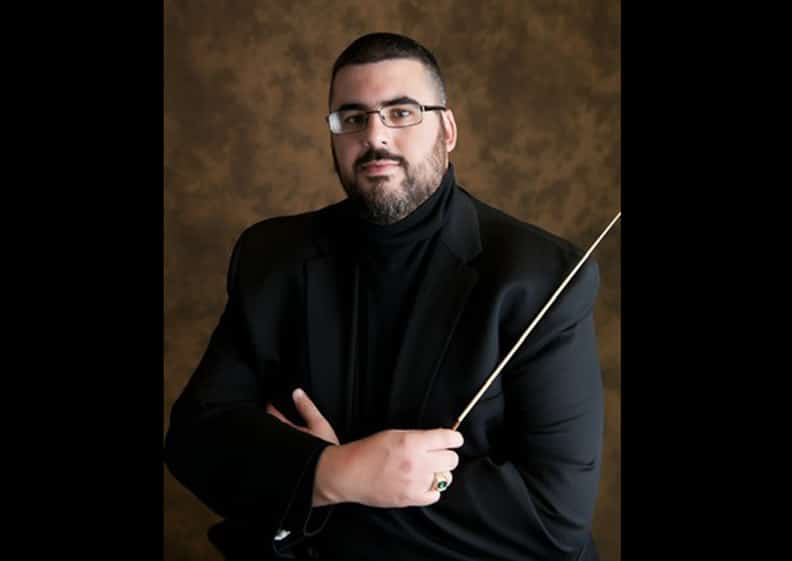‘Our orchestras are facing a perfect storm moving at high velocity’
mainFrom historian Joseph Horowitz’s summary of his address to the League of American Orchestras:
Our orchestras are facing a perfect storm moving at high velocity. How fast can they adapt? The most adaptive orchestra I know is the South Dakota Symphony. Its music director, Delta David Gier, began his tenure by initiating a Lakota Music Project linking to nine Indian reservations; most recently, he took Dvorak’s New World Symphony to Native American audiences in remote Sisseton. With its enterprising nine-member “core,” the South Dakota Symphony is positioned to maximize personal interaction with Sioux Falls residents and institutions.
The Detroit Symphony, energized by a crippling strike, is another orchestra making strides toward showing the culture of the community. That Detroit is the host orchestra for the League’s 2017 conference, next June, is auspicious. The League’s sense of urgency will likely be sustained. Will the conference again identify a single focused goal? How about expanding the role of individual musicians in every facet of orchestral life?
In most places, we fear, his proposal will go unheeded. Too many boards have too much to lose if they let musicians out of their seats.

Read the full article here.






“…energized by a crippling strike…”
An oddly crafted phrase, at best.
Engaging the Reservations hardly seems like a path to success. Most orchestras are simply failing for musical reasons, failing to program music for serious listeners, connoisseurs, and failing to play expressively in many cases. There is a vast literature being completely ignored, and that doesn’t even include unknown composers. Yet, any cd buyer can indulge their tastes and curiousity in a store or site. The Philadelphia Orchestra is one of the worst offenders in this. There hasn’t been any real variety in programming since Sawallisch. Their last big program? Brahms and Bruckner. The three B’s must now mean Boring, Bombastic and Bland.
Some of the main problems in classical music is a lack of some infrastructure. We have no major magazines about classical music, only reviews and specialized publications. Yet the UK has five! Without a comprehendable, visible population, we are unable to be perceived as a true, vibrant sector of the population, and we have no single voice with the government. We also suffer from laziness, negative thinking, and selfishness. How many successful or wealthy musicians are putting money back in? I don’t see it happening, except for celebrities. We want it all done for us so we can practice and perform, but we have to do some building up, too.
Music lovers have to do more, of course. There was a magazine in Philadelphia for several years, a good attempt, but subscriptions never topped 500. That is not a measure of interest, just of commitment. Granted, it was not a top-shelf publication, but a worthy effort.
We also lack gathering places for musicians. Of course, that would require being less anti-social.
Why should orchestras act as community workers? As instruments of social engineering? If a community, a city, an area, no longer wants a symphony orchestra – that is tragic, like throwing the family jewels into the dustbin because they aren’t of plastic, but why change its nature? Building new audiences is something done by music schools, or marketing companies, or any other organisation, bringing kids to the concerts of the orchestra, but the orchestra itself should better focus on playing. But maybe that is too common sense an opinion.
It would appear that only 9 out of 90 musicians are able to feed their families based solely on the employment of the South Dakota symphony (I realize it’s a relatively small market and don’t begrudge them that). Is this really the future we want? The shining example? I have no doubt that’s the agenda the ASOL’s are pushing for all orchestras. It seems far too often ‘adaptive’ is interchangeable with ‘let’s just keep musicians below the poverty line’.
Oh my, orchestras are in trouble!
And the South Dakota Symphony is the shining example of how to avoid this trouble!
Yes, sure.
It really saddens me to hear when music organizations strike trouble. Somehow each closure or reduction tolls the death knell for a higher culture for the society. But who are we to expect our values to be carried by the rest of the society, particularly when that society exhibits a preference for mindless bread and circuses, guns and violence and a vast reduction in the collective IQ.
Wheel out Andre Rieu – they’d probably consider him to be ‘classical music’. “Yeah, love them Strauss waltzes”, did I hear you say? How well, back to the phone….
Despite the odd premiere or new piece, the programming by my local orchestra is pretty dull fare. I travel a lot due to my job and try to go to the symphony or opera when I visit, but again, most of the offerings are similarly tepid.
One thing that might help orchestra attendance is to have more matinee or early evening (6:30-7:00 pm) start times. More educational endeavors similar to the ‘immersion’ programming that some of the London venues have might also be a draw.
Sad to say, when I want something new I turn on BBC radio 3 or make the exodus to London for a marathon session of lunchtime and evening concerts.
WHY ON EARTH IS THERE AN ORCHESTRA IN SOUTH DAKOTA? WHY?
Someone please explain why South Dakota should have a Symphony and not a Soccer Stadium, more Salsa Clubs, or 10,000 other things probably more relevant culturally to the diaspora of the region than a Symphony?
Of course orchestras have a perfect storm. Orchestras are like Blackberries in a world of iPhones…..50 years ago it made sense…now not so much. But instead of dying, musicians would rather suit up as Darth Vader or the Little Mermaid, play with a Rapper, or 100 other “efforts” to save, THE ORCHESTRA, not to communicate the classical music artform.
9 “core” members says a lot…..
What in G-d’s name does the Symphony Orchestra have to do with Native Americans? It’s like spreading Vaseline Petroleum Jelly on toast. Come on nit wits – celebrate the orchestra, its history and place in Western European culture and be proud of it. If there are too many of them in the USA, then fine, let the markets sort it out. All this hand-wringing over the demise of the Symphony Orchestra and classical music is a waste of time. It’s high culture and should be executed, consumed and enjoyed by people of high and refined taste and intelligence. Dumbing it down is not only uninteresting, it’s unfair and dilutes the culture.
Bravissimo! Well said Simon. It is great (and so rare) to find someone else on this site who understands the situation and stands against the PC idiocy that is so prevalent here and throughout our culture.
John Borstlap and Holly Golightly are also part of our ‘Band of Brothers and Sisters’ who stand in defense against the moronic PC Gestapo.